Gas vs. Electric Blowers: What Landscaping Pros Really Think
Across the country, more cities are looking at bans or restrictions on gas-powered landscaping equipment, starting with leaf blowers. Emissions and noise complaints drive regulations, but not everyone in the industry is convinced that going electric is the right move.
We asked GreenPal landscapers across the U.S. to weigh in. The responses reveal a clear divide: while some pros say electric equipment is finally ready for daily use, others believe the technology still falls short.
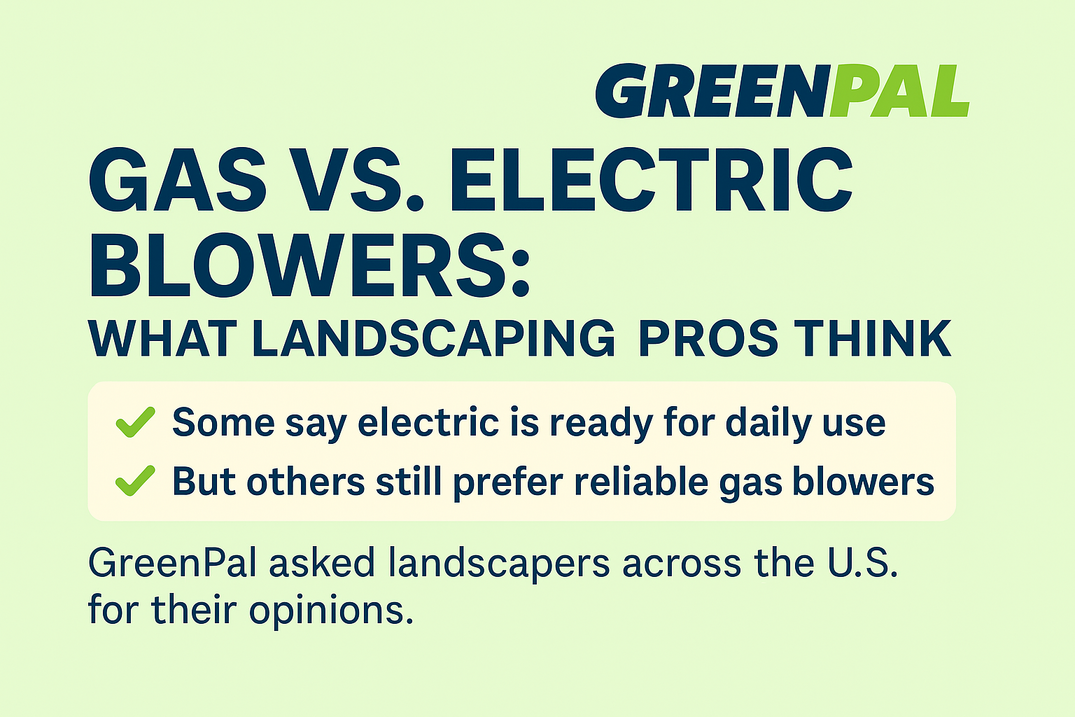
Why the Push Toward Electric?
Gas-powered blowers have long been the standard for speed and power, but rising emissions standards are putting pressure on contractors to adapt. Local ordinances in some areas are already restricting gas blowers during certain hours or banning them altogether.
| Reason for Change | What It Means for Landscapers |
|---|---|
| Emissions Standards | Cities tightening noise and fuel regulations |
| Client Expectations | More homeowners asking for “green” services |
| Maintenance | Electric models require fewer tune-ups |
| Costs | Rising fuel prices make electricity more appealing |
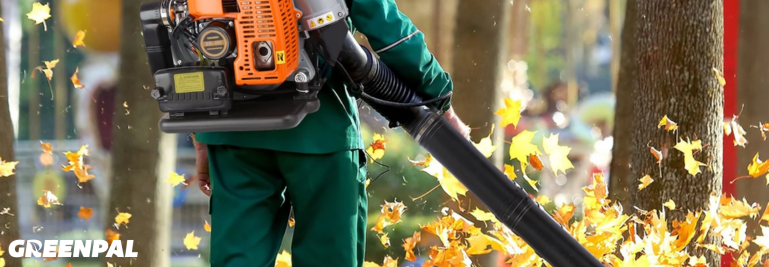
The Case for Going Electric
Some landscapers say the transition is paying off. A few who run residential routes have gone fully electric, charging equipment overnight and cycling batteries throughout the day.
One contractor said switching to a dual-battery backpack blower allowed them to cut fuel costs completely while keeping consistent performance. Others mentioned using handheld electric blowers for smaller properties or trimming around ladders where lightweight tools are easier to manage.
These pros also report quieter operation, fewer vibration issues, and less maintenance—especially compared to older gas models that require frequent servicing.
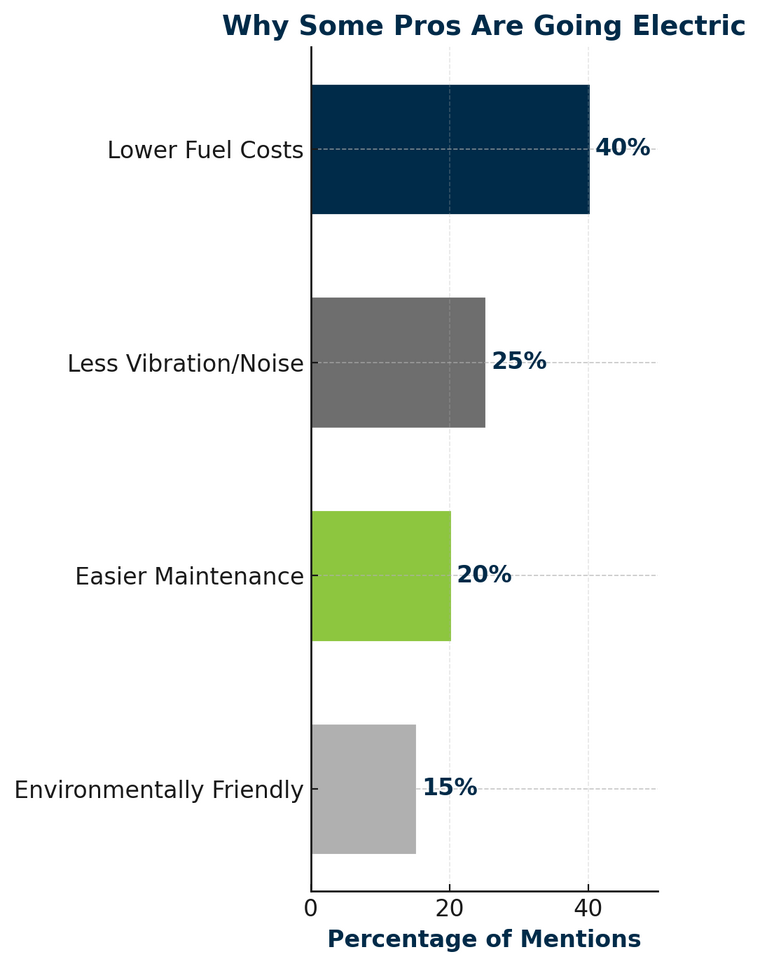
Still, even these users admit electric blowers have limits. For bigger properties or fall cleanups, multiple batteries or even backup gas units are often necessary.
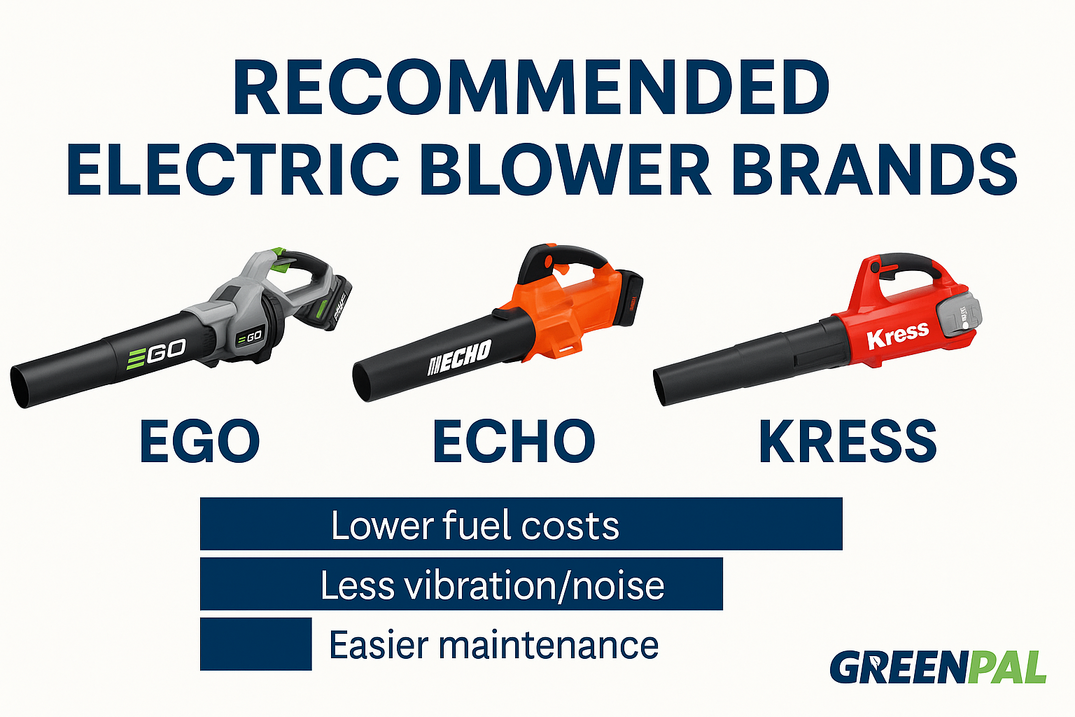
Why Many Pros Still Prefer Gas
On the other side of the debate, many landscapers aren’t ready to give up their gas blowers. The most common complaints: short battery life, reduced power, and higher upfront costs.
Several contractors said that even with spare batteries, recharging adds downtime they can’t afford during a full day of service. One noted that a gas blower can usually finish an entire property on one tank, while an electric version might need several battery swaps.
Others questioned the environmental impact, pointing out that manufacturing and charging batteries still consume large amounts of energy.
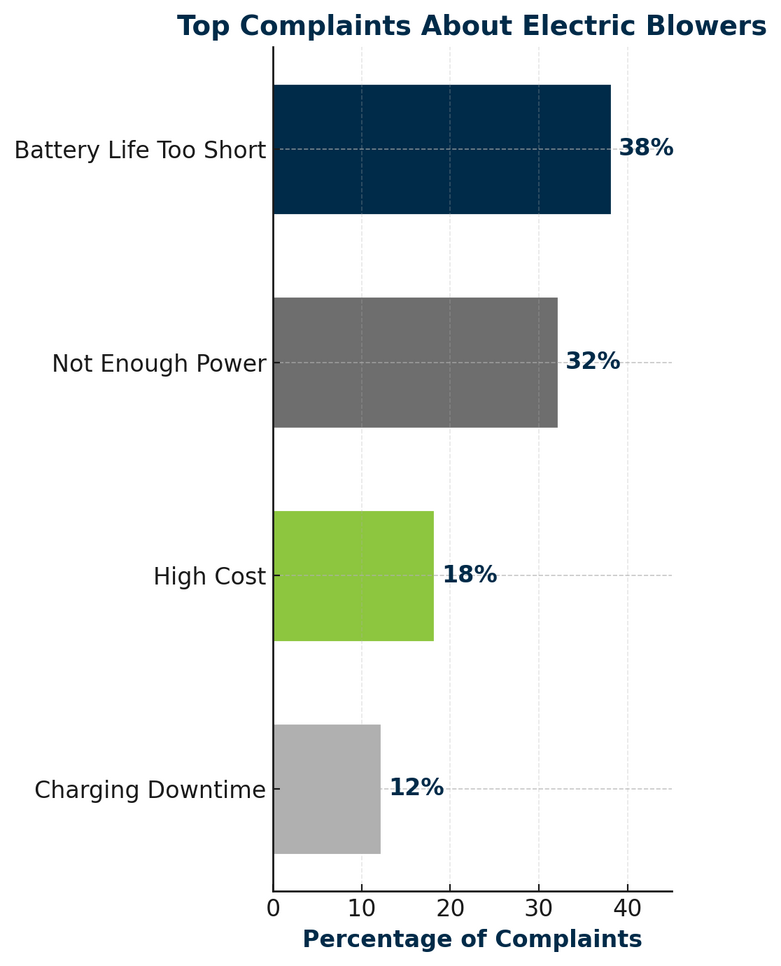
For now, most large commercial crews continue to stick with gas. The technology works, it’s fast, and the workflow is already built around refueling—not recharging.

Real-World Setups That Work
Some pros are finding a middle ground by using both. Battery-powered handhelds are great for sidewalks, driveways, and quick touch-ups, while gas blowers handle heavier debris and long cleanup jobs.
| Equipment Setup | Usage Type | Pros’ Take |
|---|---|---|
| Electric handheld blower (EGO, Echo, or Kress) | Residential | Reliable for small jobs, quiet, easy to use |
| Dual-battery backpack blower | Mid-size properties | Good runtime when batteries can be cycled |
| Gas blower | Heavy debris & leaf cleanup | Still the most powerful and efficient |
| Hybrid setup (gas + electric) | Mixed routes | Best flexibility and uptime |
One contractor with arthritis said electric tools significantly reduce fatigue from vibration, making daily work less painful — a practical benefit rarely mentioned in the debate.
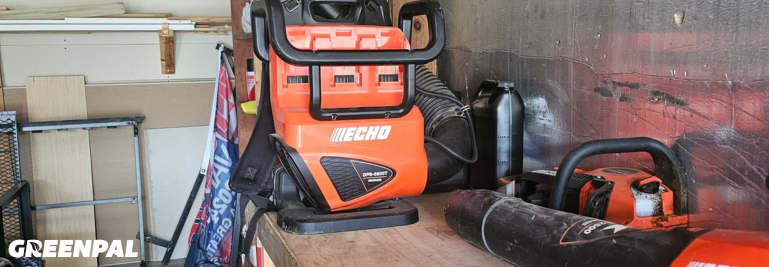
Where Landscapers Stand
Based on hundreds of GreenPal pro responses, here’s where the industry currently stands:
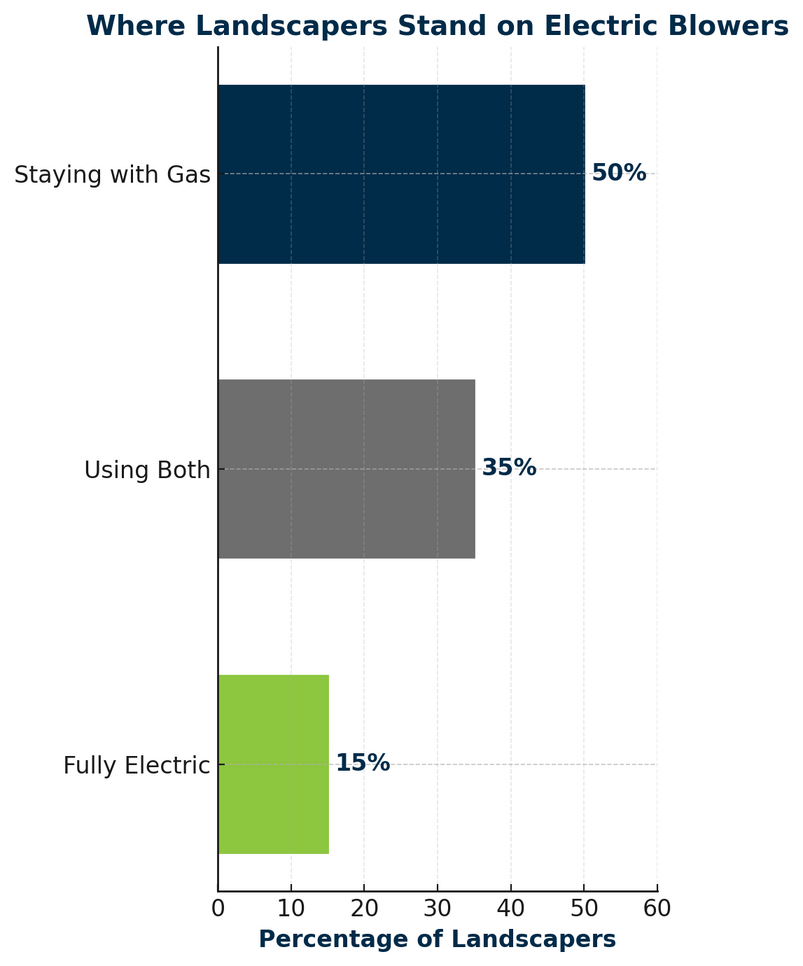
The takeaway: while electric is gaining ground, most pros still rely on gas for the heavy lifting.
Even those who like electric say the technology isn’t perfect yet. But once battery life and cost efficiency improve, they believe it could eventually replace gas for most everyday jobs.
What This Means for Your Business
If you’re running a small residential route, testing an electric blower might make sense. You can charge overnight, carry backup batteries, and see how it fits your workflow.
For large-scale operations, the transition will take longer—but keeping an eye on new releases from brands like Kress, EGO, and Echo could help you plan ahead.
No matter what powers your tools, clients ultimately care about clean, reliable service. If electric gear helps you work quieter and save on gas, it could be a smart long-term move.
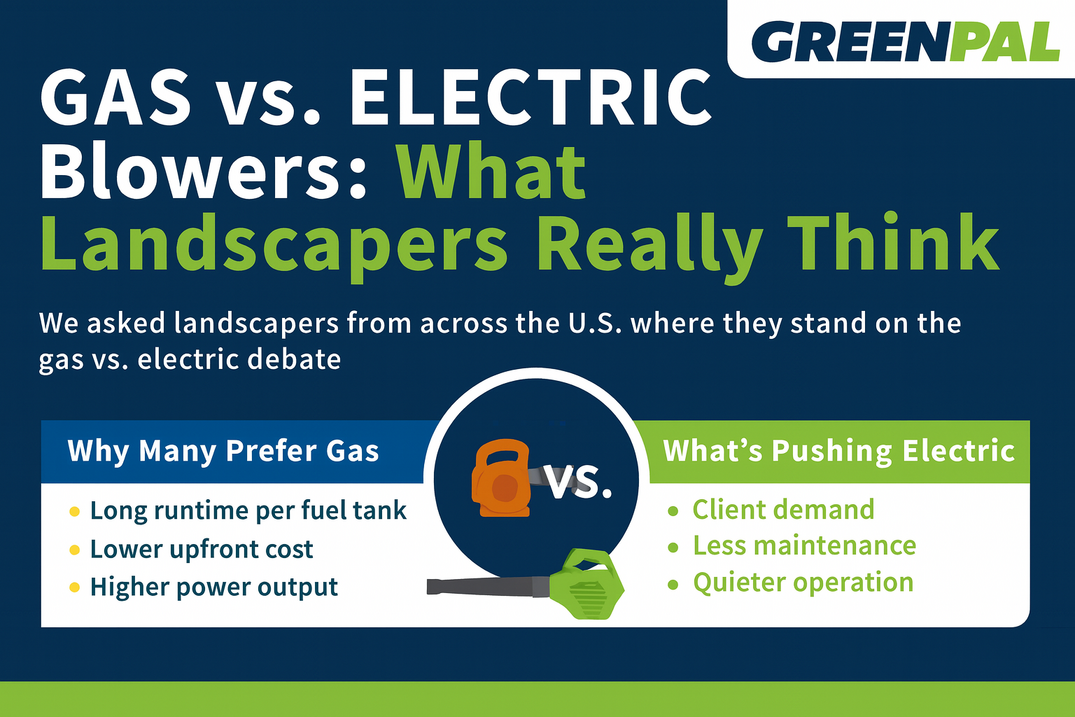
Final Thoughts
Whether you’re all-gas, all-electric, or somewhere in between, what really matters is staying efficient and finding steady work.
With GreenPal, you can do both.
✅ Get matched with homeowners in your area.
✅ Build a recurring client list.
✅ Focus on service, not marketing.
Sign up for free on GreenPal and grow your lawn care business today.





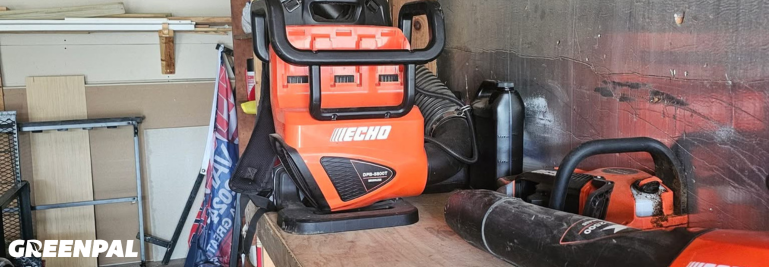

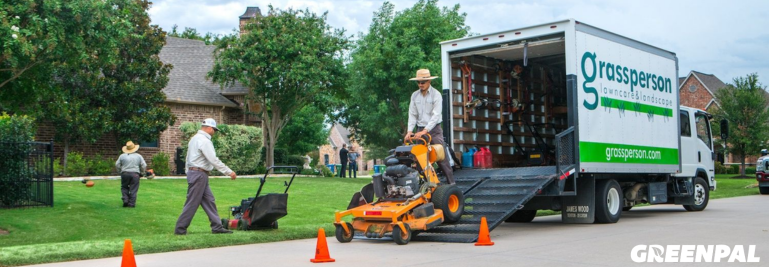



![20 Insider Tips on Starting a Lawn Care Business [What they DON'T tell you]](https://greenpal-production.s3.amazonaws.com/pq1qjlqbm6jk767q4ru6egdddf5c)

